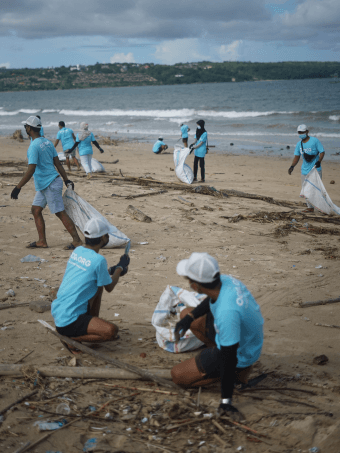Greenpeace's campaign video, which uses the Rugby World Cup trademark without authorization, has ignited a legal debate over whether such use constitutes infringement under trademark law. RWCL, through its legal representative, has demanded that Greenpeace cease and desist immediately, citing infringement of intellectual property rights. This demand highlights the inherent tension between the protection of trademarks and the right to freedom of expression, especially when the entity using the trademark is a non-profit organization like Greenpeace.
The Concept of "Fair Use"
In the realm of trademark law, the concept of "fair use" is a multifaceted and often contentious issue. It hinges on the delicate balance between safeguarding the exclusive rights of trademark owners and protecting the broader interests of society, including the freedom of expression, artistic creativity, and public commentary. "Fair use" exceptions are designed to permit certain limited uses of trademarks that do not infringe upon the owner's rights.
The mention of "use in the course of trade" in Article 10(2) of Directive (EU) 2015/2436 hints at the possibility of a "fair use" exception, provided the unauthorized use does not involve the trading of goods or services. This raises the crucial question: Does Greenpeace's use of the trademark fall within the realm of "fair use"?
Non-Commercial Use vs. Fair Use
While Greenpeace contends that its use of the Rugby World Cup trademark does not infringe RWCL's rights due to its non-commercial nature, this argument may not hold up under scrutiny. "Fair use" exceptions for non-commercial use typically pertain to activities such as academic articles, media reports, and commentary, which do not have a profit motive.
However, Greenpeace's reliance on donations and external funding complicates this argument. The "TotalPollution: A Dirty Game" campaign, by its very nature, seeks to raise awareness and support for its cause. It is plausible that this campaign could lead to increased donations from individuals and organizations sympathetic to Greenpeace's mission. This raises the question of whether the campaign can genuinely be considered non-commercial in nature.
Takeaway
If RWCL were to pursue legal action, it could challenge Greenpeace's assertion of non-commercial use by arguing that the campaign indirectly benefits Greenpeace financially through increased donations. This would test the boundaries of what constitutes "fair use" under European trademark law.
Ultimately, this case serves as a reminder that trademark law and the boundaries of "fair use" is not always a clear-cut domain. Whether this dispute serves as a precedent for future cases or prompts a reevaluation of trademark law remains to be seen. Nevertheless, it underscores the need for ongoing discussions and legal interpretations to ensure a fair balance between trademark protection and the exercise of fundamental rights. As the Rugby World Cup kicks off, the Greenpeace campaign stands as a symbol of the ongoing struggle to define the limits of trademark use.
FAQs - Greenpeace's Use of the RWC Trademark
1. Why is Greenpeace's use of the Rugby World Cup trademark controversial?
Greenpeace used the Rugby World Cup trademark in a campaign video without permission, prompting the trademark owner (RWCL) to issue a cease-and-desist. This raises a legal debate over whether Greenpeace’s use is trademark infringement or protected under fair use, especially since Greenpeace is a non-profit organization engaging in public commentary rather than selling goods or services.
2. What is “fair use” in trademark law, and could it apply to Greenpeace’s campaign?
“Fair use” allows limited use of a trademark without permission if it doesn’t exploit the brand commercially or mislead consumers. It typically covers things like media reporting, criticism, or parody. Greenpeace claims its campaign qualifies as fair use due to its non-commercial, awareness-driven nature—but since the campaign may boost donations, RWCL could argue it indirectly benefits Greenpeace financially, pushing it outside of true non-commercial territory.
3. Could this case set a legal precedent in trademark law?
Yes. If RWCL takes legal action, it could test the limits of fair use in Europe, especially regarding non-profit advocacy campaigns. The outcome may influence how courts interpret non-commercial use, donation-based campaigns, and the balance between trademark protection and free expression—potentially reshaping how similar disputes are handled in the future.


